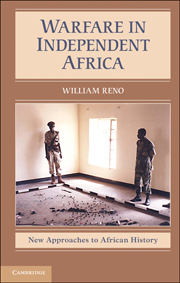1 - Evolving Warfare
Published online by Cambridge University Press: 05 June 2012
Summary
Warfare in Africa has undergone considerable change. In 1972, supporters of an anti-colonial liberation struggle in Guinea-Bissau reported that a United Nations (UN) delegation spent seven days in rebel-held territory to learn about the administration that rebels had built to provide services to people there. To the rebels' supporters, this was “the only government responsible to the people it has ever had.” A person suddenly transported from that “liberated zone” three and a half decades forward through time would be in for a shock. UN officials in West Africa reported that in Guinea-Bissau it was hard to distinguish between state security forces and armed drug traffickers; they were allegedly in league with one another and showed little concern for the welfare of the wider population. This time traveler might hear of factionalized fighting in Liberia and Sierra Leone during the 1990s. Young fighters there did not seem to be very different from those who participated in anti-colonial struggles. But the aims of their leaders seemed to be far more parochial: to grab power in the existing political system instead of creating a new one, or to defend a particular ethnic community. Congo, Somalia, Nigeria's Delta region, and many other places suffered from what seemed to be an excess of rebel groups who were fighting one another as much as governments and who largely displayed a dearth of interest in providing people with an alternative vision of politics or even in administering them in “liberated zones.”
- Type
- Chapter
- Information
- Warfare in Independent Africa , pp. 1 - 36Publisher: Cambridge University PressPrint publication year: 2011



